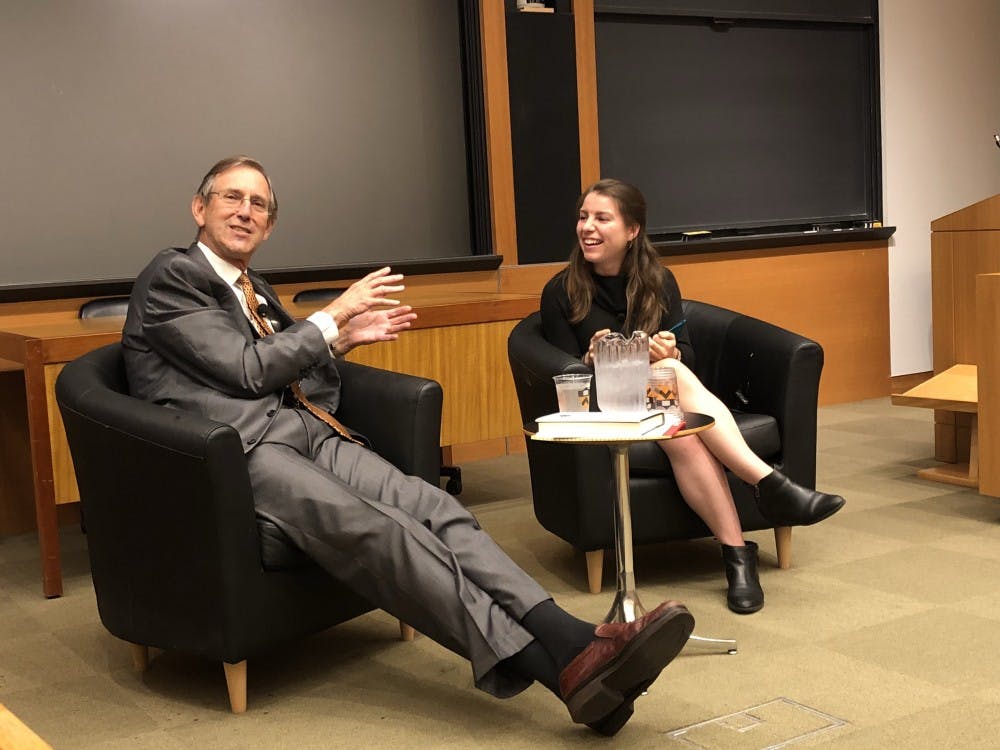Former U.S. diplomat and current Wilson School lecturer Rick Barton discussed his book “Peace Works: America’s Unifying Role in a Turbulent World,” as well as the United States’ role creating sustainable peace in a book talk on Monday.
Barton, the co-director of Princeton’s Scholars in the Nation’s Service Initiative, stressed the need for more community-focused diplomacy. Barton argued that meaningful action requires being “grounded in the reality of the local people.”
“If we don’t know [at least] 100 people in a place, don’t send a U.S. soldier,” he said. “That would have kept us out of about, most of the really heavy [conflicts] we’ve done recently.”
Such people-focused groundwork was essential in many of the international examples he discussed, including one about Pakistan.
Though the United States has given Pakistan “every form of assistance that we have,” this assistance is not conducted on a personal level, Barton said.
On the other hand, connections through personal diplomacy in Nigeria led to the creation of a reality television show about peaceful problem solving, productively combating a national notion of violence being profitable.
“People actually started to reflect on this quality of their own society which we could not have drilled into them,” Barton said.
While a central concern of foreign policy is engagement with international citizenry, another difficulty lies in attracting the attention of U.S. citizens, according to Barton.

Likening U.S. residents’ impressions of diplomatic success rates to fans of losing teams, Barton said that scant faith in success abroad was a major factor in widespread public apathy towards foreign policy.
But Barton said he remains positive about the United States’ potential to provide useful assistance.
“We are a country that is advantaged,” Barton said. “But we need to be able to do more with the position.”
Audience member and Wilson School visiting professor Bob Hutchings called the talk a “very timely reminder … on the things we are able to do as a country and those we should be hesitant about taking on.”

The question-and-answer session was moderated by Master of Public Administration student and SINSI member Caitlin Quinn GS.
Quinn, who first met Barton when applying for SINSI, read “Peace Works” over the summer and reached out to Barton, who responded by proposing the book talk.
“He emphasizes the importance of investing in opportunities that don’t have a great chance of success, but that’s the smartest diplomatic strategy anyway, to recognize that we’re going to fail more often than we succeed,” Quinn said.
For other students looking to make impacts, Barton recommended reaching out to students in other countries and making sure the U.S. government relies on civilians rather than the military to enhance peace.
The talk was held at 4:30 p.m. in Robertson Hall on Monday, Oct. 1. It was hosted by the Wilson School and co-sponsored by Labyrinth Books.








